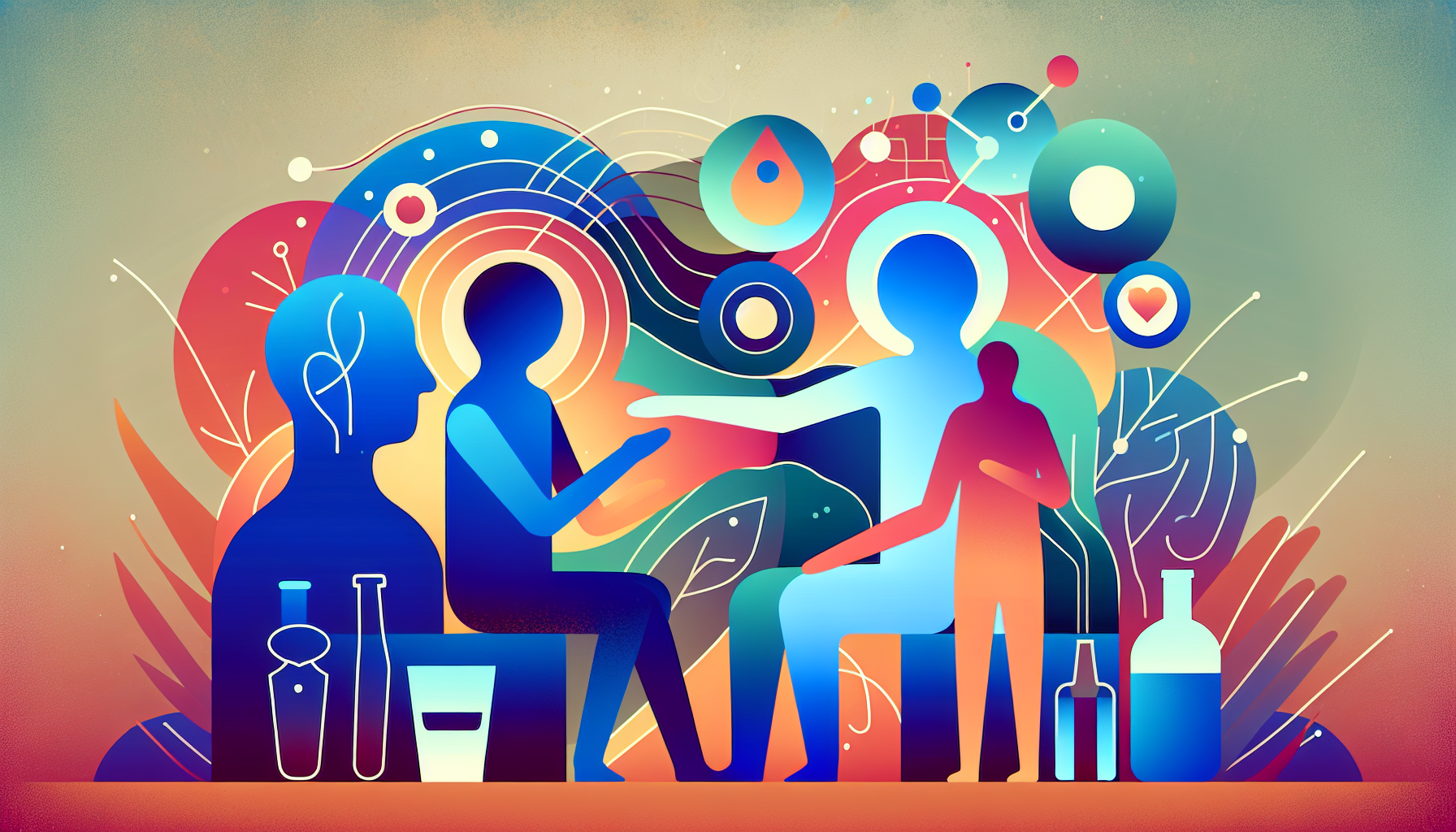Alcohol use disorder, also known as alcoholism, is a brain disease that affects millions of people. If you find it difficult to control your drinking habits and experience emotional distress when not consuming alcohol, you may be struggling with this condition. It's important to understand that alcohol use disorder is not a personal failing or a lack of willpower, but rather a medical condition that requires proper treatment.
Recognizing the Signs of Alcohol Use Disorder
The first step in addressing alcohol use disorder is recognizing the signs and symptoms. Your healthcare provider may diagnose you with alcohol use disorder if you experience several of the following criteria:
Drinking more alcohol or over a longer period than originally intended
Unsuccessfully trying to cut down or control alcohol use
Craving, or a strong desire or urge to use alcohol (wanting a drink so much it's difficult to think of anything else)
Drinking that interferes with responsibilities at home, at work, or at school
Continuing to use alcohol even when it causes problems with family and friends
Giving up important social, occupational, or recreational activities because of alcohol use
Repeatedly using alcohol in physically hazardous situations
Developing a tolerance to alcohol (needing more alcohol to get the same effect)
Experiencing withdrawal symptoms such as shakiness, restlessness, nausea, or sweating after stopping or reducing drinking
If you identify with any of these signs, it's crucial to discuss your concerns with your doctor. Together, you can set goals and create a treatment plan tailored to your needs.
Exploring Treatment Options for Alcohol Use Disorder
There are several effective treatment options available for individuals struggling with alcohol use disorder. The most appropriate approach depends on your unique situation and goals. Many people find that a combination of treatments works best, and these can be accessed through various programs, including inpatient or residential programs and outpatient programs.
Detoxification
For those with severe drinking problems, detoxification is a crucial first step. Detox involves stopping alcohol consumption and allowing your body to rid itself of the substance, which typically takes a few days to a week. During this time, you may experience withdrawal symptoms such as tremors, hallucinations, and seizures.
Important Safety Warning: Alcohol detoxification can be life-threatening and should never be attempted without medical supervision. Severe withdrawal symptoms can be fatal, so professional help SHOULD be sought immediately if you are considering stopping heavy alcohol use.
Medical professionals can monitor your progress and provide medication to help manage these symptoms safely. Detox can be done on an inpatient basis, where you stay full-time in a clinic, hospital, or detox center, or on an outpatient basis, where you visit your healthcare provider for treatment during the day. The best option for you will depend on the severity of your condition.
Counseling and Therapy
During or after alcohol rehabilitation, working with a therapist can help you develop new skills and strategies to maintain long-term sobriety. Psychologists, social workers, or alcohol counselors can teach you how to:
Modify behaviors that trigger alcohol cravings
Manage stress and other triggers
Establish a strong support system
Set and achieve personal goals
Counseling sessions can be short and focused, or longer-term to address underlying issues such as anxiety or depression. Couples or family therapy may also be beneficial, as alcohol use can significantly impact loved ones.
Medication
While there is no cure for alcohol use disorder, certain medications can aid in the recovery process. These medications work by making drinking less enjoyable, reducing cravings, or blocking the pleasurable effects of alcohol. Some examples include:
Disulfiram (Antabuse): Causes unpleasant symptoms when alcohol is consumed
Acamprosate (Campral): Helps reduce alcohol cravings
Naltrexone (Revia): Blocks the euphoric effects of alcohol
Your doctor may also recommend medications used for other conditions, such as smoking cessation, pain management, or epilepsy, as they may be effective in treating alcohol use disorder.
Support Groups
Participating in group therapy or support groups can be incredibly helpful during rehab and in maintaining sobriety. Group therapy, led by a therapist, combines the benefits of therapy with the support of other members. Support groups, such as Alcoholics Anonymous, SMART Recovery, and other programs, are peer-led and offer understanding, advice, and accountability.
The Road to Recovery
Overcoming alcohol use disorder is a journey that requires persistence and hard work. Surrounding yourself with supportive family and friends, taking care of your physical and mental health, and engaging in activities that don't involve alcohol can all contribute to your success. Remember, recovery is a process, and relapse is not a sign of failure, but rather a stage that many people experience. With the right treatment, support, and mindset, you can overcome alcohol use disorder and lead a fulfilling, sober life.
For more information and resources, visit:



